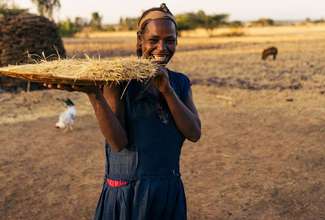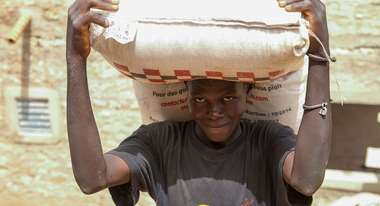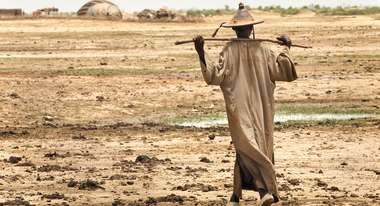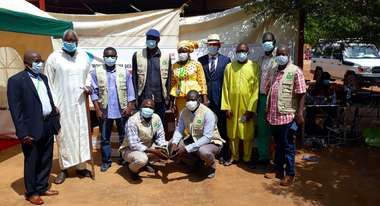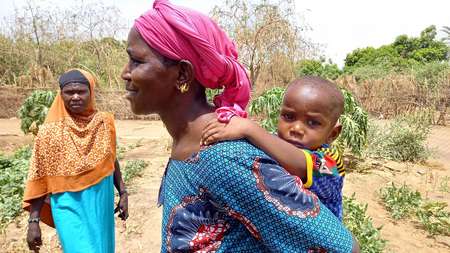
Prepared for the impact of climate change
In Mali, 5.9 million people, or almost a third of the population, are in need of humanitarian assistance. An additional 360,000 people are refugees or have been internally displaced, and 950,000 people are urgently in need of food assistance.
Rising temperatures, the decreasing annual rainfall, armed conflict between the Malian Armed Forces and radical jihadists groups, the Covid-19 pandemic, and overall socio-political instability have hampered Mali’s development and lead to rampant food insecurity and poor nutrition for millions of Malians.
To help improve living conditions in the country, Welthungerhilfe and Alliance2015 partner People in Need (PIN), together with local non-governmental organisations and with funding from the Ministry of Foreign Affairs of the Czech Republic, have been providing humanitarian assistance in Mali since 2019. The team’s work in the north of the Kayes Region in the country’s southwest, one of the areas most severely affected by extreme weather and conflict, aims to build up residents’ resilience to these threats.
Climate change, armed conflict, and Covid-19 contribute to insecurity
In 2020, the frequency of climate change-induced shocks in Mali led to a deterioration in the population's livelihoods, an increase in prices, and displacement. Richard Walker, PIN’s Regional Director for Africa, says: “Climate change in 2020 in the Sahelian Zone manifested itself in a variety of ways, including droughts, which caused losses of livestock and/or crops, flooding from very heavy rains that damaged infrastructure such as roads, houses, gardens, and dams, and heat peaks of up to 45° Celsius that have mainly affected infants and the elderly.”
In addition, insecurity in the Sahel in 2020, caused by jihadists and armed criminals, disrupted agropastoral activities and markets, and hindered the mobility of people and animals.
“I used to carry water for 12 kilometers”
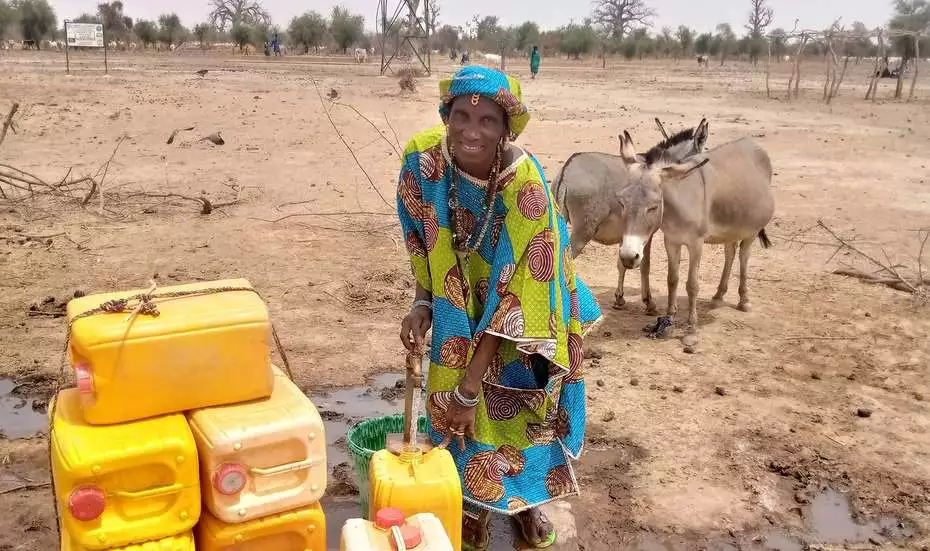
Hawa Sidibé, 54, lives in the small village of Guessé Thierno with her family of ten. Her main source of income are sheep and goats that she follows to seasonal pastures near the village.
Hawa Sidibé says: “We have had issues with water supply since the Guessé Thierno village was formed. I used to carry water for at least 12 kilometers for my family. Imagine a population that relies on livestock for its livelihood but lacks water for itself and for the animals. I often spent up to 5,000 francs per day on water.” Hawa Sidibé explains that she tried everything to solve the water problem, but without success. “Then the village chief and his advisers learned that there was finally a plan for the construction of a pastoral borehole.”
As part of the relief activities, the village of Guessé Thierno received a new well for the inhabitants with two drinking troughs for the animals. Hawa Sidibé adds: “Over 500 people benefit from this water, and the daily lives of women have changed significantly. We have more time to devote to our other duties, and we also have more time to recover from our long working days.”
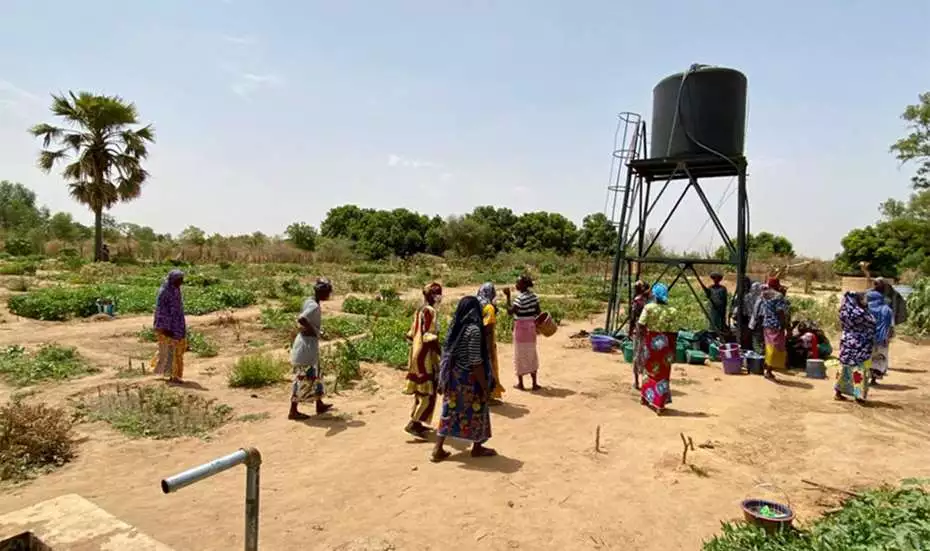
To date, approximately 6,300 households benefit from the improvements. Small dams in the project area have become centers of inclusive and sustainable economic development. They promote gardening, rice and cereal growing, fish farming, cattle watering, tree growing, and other productive activities.
Additionally, 203 young people participated in the rehabilitation of some of the small dams, enabling them to earn money by working for the community. A total of 10,000 households or 60,000 people are expected to benefit directly from the project.
This article was first written and published by Petr Štefan, Communication Officer for People In Need.
How Welthungerhilfe Supports People in Mali
- Improved access to farmland and water for agropastoral households through the construction, maintenance, and management of agricultural and pastoral infrastructure
- Implementation of soil and water conservation measures to improve soil fertility and protect natural resources
- Access to higher quality inputs, services, and extension should help improve agricultural production.
- Diversifying beneficiaries' sources of income and thus improving food security
- Improved food security and livelihoods contribute to greater stability in the region and reduce internal migration.
- A total of 60,000 people are expected to benefit from the project.




